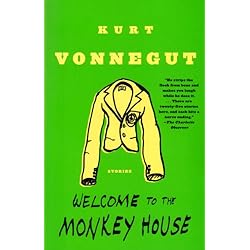My oldest brother, Tommy, and I often have long discussions on productivity, motivation and mental tricks that help turn great ideas into completed projects.
Last year, he talked me into trying “The Secret” approach; that is, using the power of positive thinking to break through subconscious doubts we tend to build in our minds without knowing, as we use phrases like “I might” and “I think” , instead of “I will” and “I know”, when motivating ourselves.
In the first week, my motivation was high, and I’d temporarily brainwashed myself into moving away from my natural tendency to let the mind wander to other pending tasks. In the second week, I slowly turned back to my old ways. I would tell myself “I will do THIS…” but then find myself sliding to a different task once I ran into a wall with that particular primary task.
This article on “The Willpower Paradox” shows an interesting study on just this type of thought-processing, and the findings showed that I wasn’t the only one with this problem of adopting “The Secret” method.
From bobulate:
“To be willing is to be able.” Or so we have heard. But recent research shows that setting your mind on a goal may be counterproductive:
[The researcher] identified some key traits needed not only for long-term abstinence but for any personal objective, from losing weight to learning to play guitar.
And:
[One group] was basically putting their minds into wondering mode, while the [second group] was asserting themselves and their will. It is the difference between “Will I do this?” and “I will do this.”
The results were provocative. People with wondering minds completed significantly more anagrams than did those with willful minds. In other words, the people who kept their minds open were more goal-directed and more motivated than those who declared their objective to themselves.
The results seem counterintuitive, but:
[T]hose with questioning minds were more intrinsically motivated to change. …. Those who were questioning and wondering were open-minded — and therefore willing to see new possibilities for the days ahead.
As Jonathan Harris so eloquently puts it, guard your secrets, even those that you can only feel and sense, not state clearly to even yourself. Celebrate your lack of plan. Know what you want, but leave the future open.
The difference between whether “I will do this…” and “Will I do this…?” varies for most of us. I tend to fall in the category of the type more like bobulate where it’s not always that bad to not have a full plan and have to-do lists for our to-do lists in order to be effective at work.
We’re all trying to prevent our $1 million-dollar idea from falling $999,999 short. Learning how we are motivated, consciously and subconsciously, will help guide us in the right direction.
 Thanks to his entertaining wit, boundary-less imagination and scattered way of piecing together a narrative, he has overtaken George Orwell as my favorite writer. “Welcome to the Monkey House” is the best collection of short stories I’ve ever read.
Thanks to his entertaining wit, boundary-less imagination and scattered way of piecing together a narrative, he has overtaken George Orwell as my favorite writer. “Welcome to the Monkey House” is the best collection of short stories I’ve ever read.